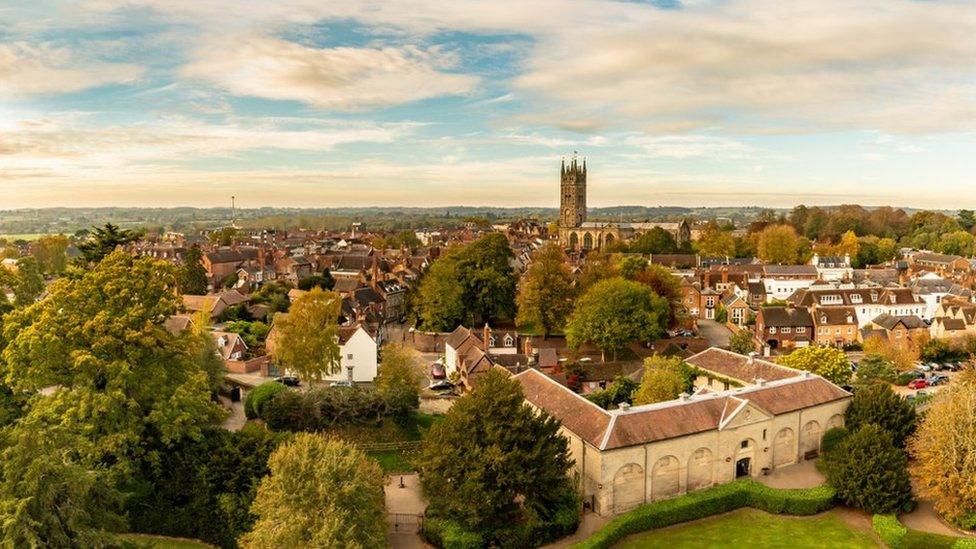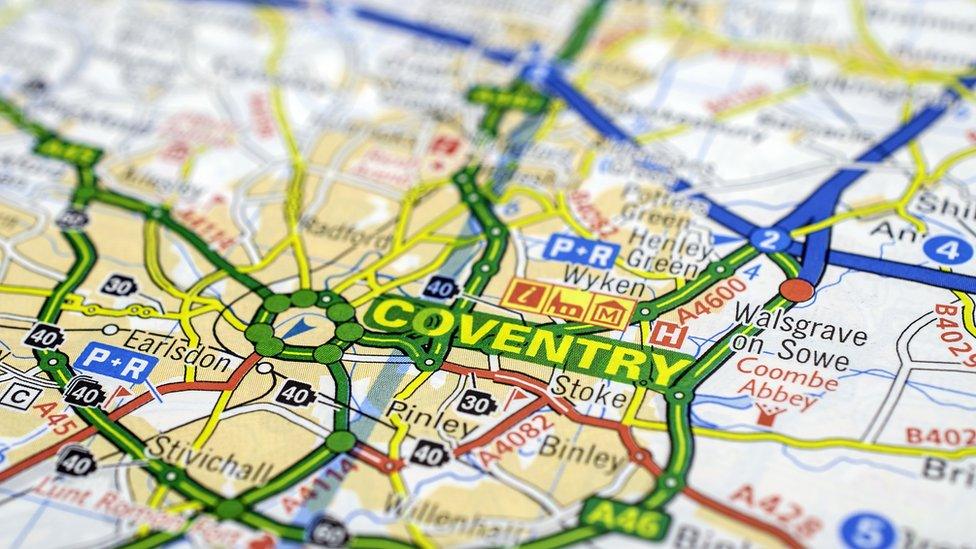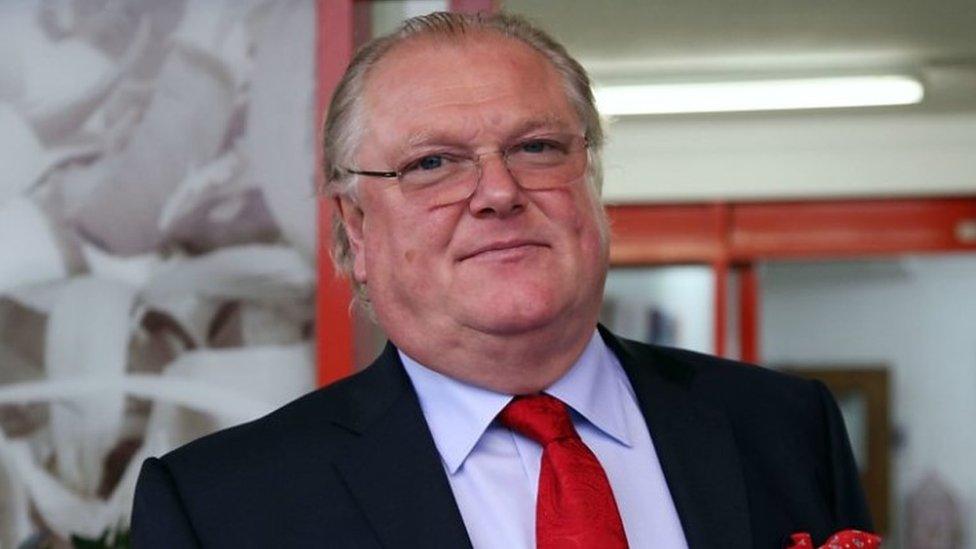Why Midlands councils pay millions for silence
- Published

Sunday Politics Midlands can reveal local councils are spending millions to buy the silence of people leaving their employ
Silence is golden
The origins of this familiar proverb are lost in time.
But it's as apt today as it was whenever the expression was coined: "coined" being the operative word, because this weekend's Sunday Politics Midlands will reveal local councils are spending millions to buy the silence of people leaving their employ.
Technically they're called non-disclosure agreements; or, more commonly, gagging orders; or, more commonly still, hush money.
This is the clear conclusion from inquiries made under the Freedom of Information Act by our BBC Coventry and Warwickshire Political Reporter, Simon Gilbert.
His research was confined to his 'patch', but it is, in many ways, a microcosm not just of the Midlands but also of the whole country.

Warwick is a town which enjoys the economic warmth of south-east England
It is a typical mixture of town and country: major centres such as Coventry, Rugby and Stratford-upon-Avon are surrounded by rolling agricultural acres interspersed with "picture postcard" villages.
It's also the place where the South meets the North.
Warwick and Leamington enjoy the economic warmth of south-east England, wafted up from the Thames Valley via the M40 and the Chiltern Railway.
But venture up towards former mining areas around Atherstone, Coleshill, Nuneaton and Bedworth and you feel much closer to the gritty industrial landscape of northern England.
No wonder the assorted local authorities are a correspondingly representative sample as well, from Coventry's unitary metropolitan authority to Warwickshire's over-arching county council with its five lower-tier district authorities.
So it may not be fanciful to suggest Simon's information requests present a snapshot of a much bigger picture.
Simon says....

Over the past five years, those seven Coventry and Warwickshire councils spent £2.3m on non-disclosure agreements with a total of 309 employees.
The councils have told him that in most cases, they were funded from service level budgets and cash reserves.
This raises the obvious question: could this money not be better spent on services of direct benefit to local residents?
Back comes the answer that no council would enter into a settlement which it did not consider represented value for money for taxpayers.
But beyond written answers to Simon's questions, none of the councils has so far agreed to put up anyone in person for interview.
This doesn't exactly quell speculation as to what exactly these councils are paying significant sums for, in order to ensure people's silence.
Bullying? Harassment? Is there perhaps even an echo of the whistleblowing furore which became such a toxic issue in the NHS?
Alternatively could some of these settlements look more like "sweetheart deals"?

Lord Digby Jones says non-disclosure agreements are, on the face of it, just a matter of contract
Without greater transparency, the rumour mill will continue to grind its well, or ill-founded, speculation leaving fertile imaginations with ample scope for conspiracy theories.
Before Lord Digby Jones became Director General of the CBI and, later, a trade minister, he was a lawyer specialising in employment cases.
He is now one of Warwickshire's most distinguished residents.
He tells us non-disclosure agreements are, on the face of it, just a matter of contract.
"I'll pay you this sum of money and in return you will go away and build your own life and move on.
"Why I'm paying you this money is I don't want to settle the whole thing and then find you are still writing to me, writing to newspapers, you've not moved on and you're basically carrying on with your grievance and pushing me for more money."
He goes on: "How else do you get people, who may or may not have a grievance, or may not have a grievance as big as they say it is, or may be genuinely entitled to their grievance... how do you get the situation to move on and for the people to move on with their lives, if you don't say 'here's some money, shut up'? I think I'm with the councils in that respect."
Are we now, perhaps, beginning to see why there may be circumstances when NDAs may indeed represent good value for money for taxpayers?
Which side of the argument are you on?
We'll be taking up the debate in this week's Sunday Politics Midlands at our usual time of 11.00 on BBC One this Sunday 10 February 2019.